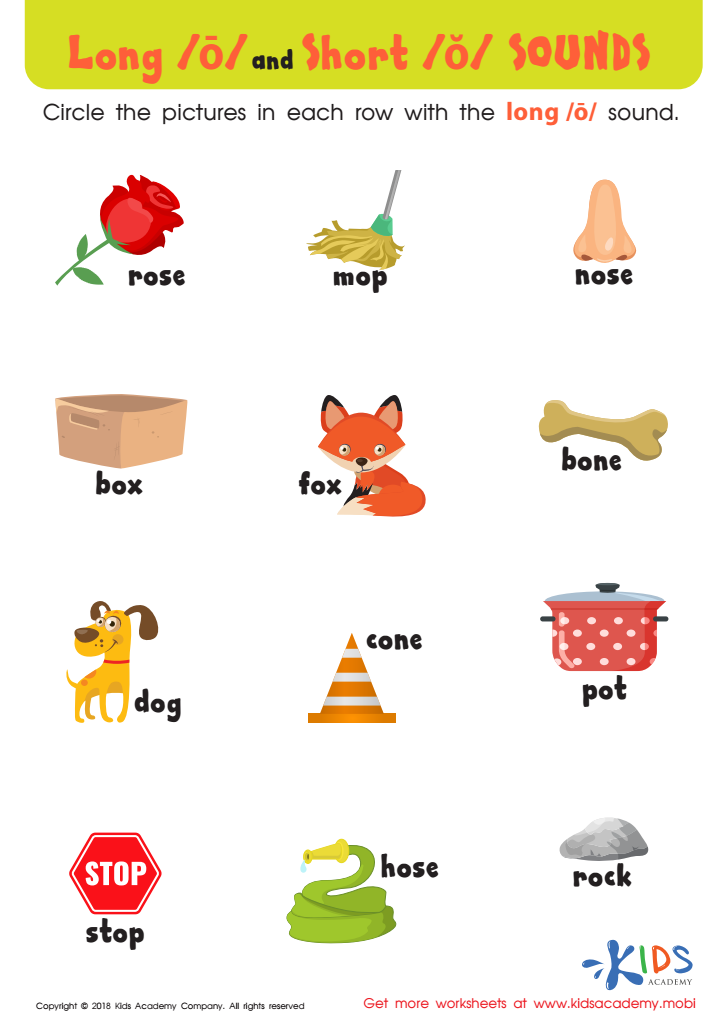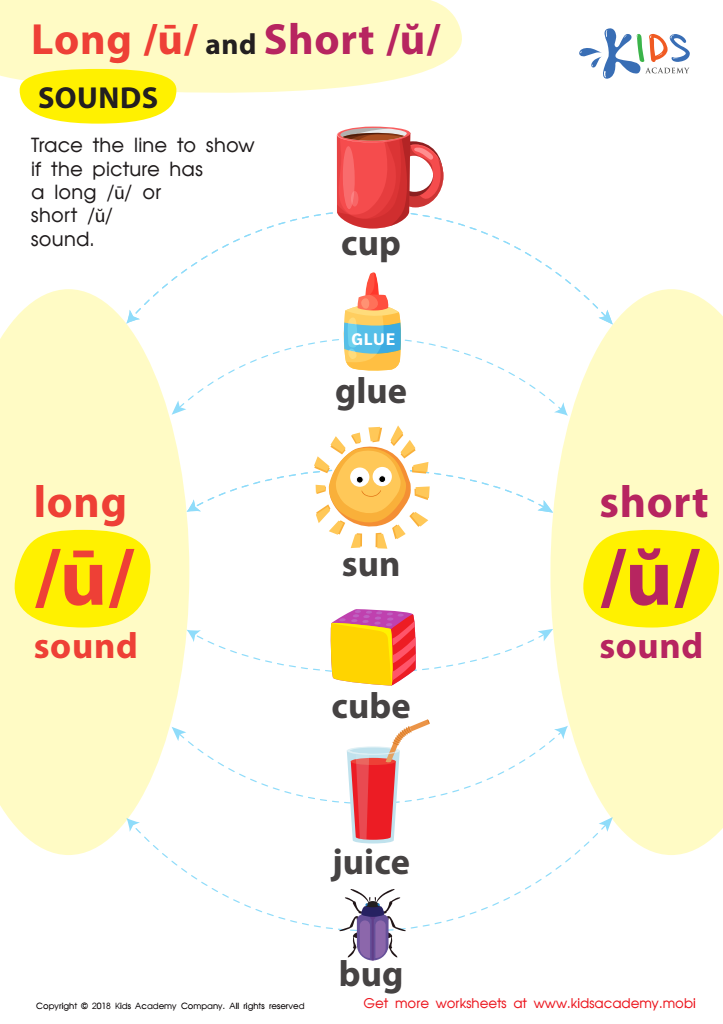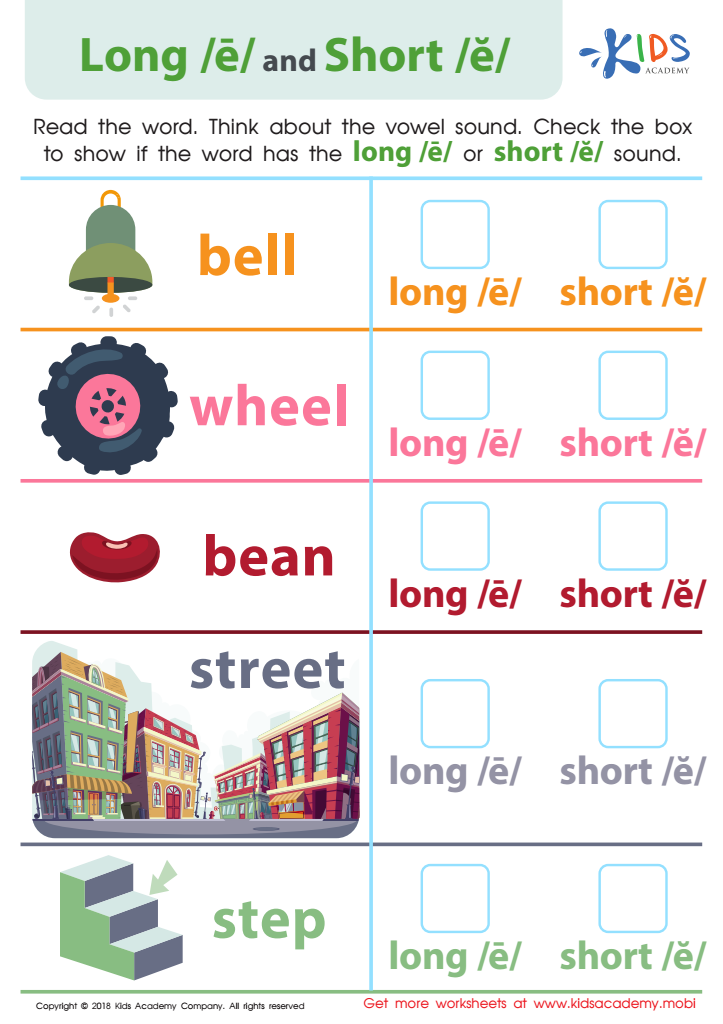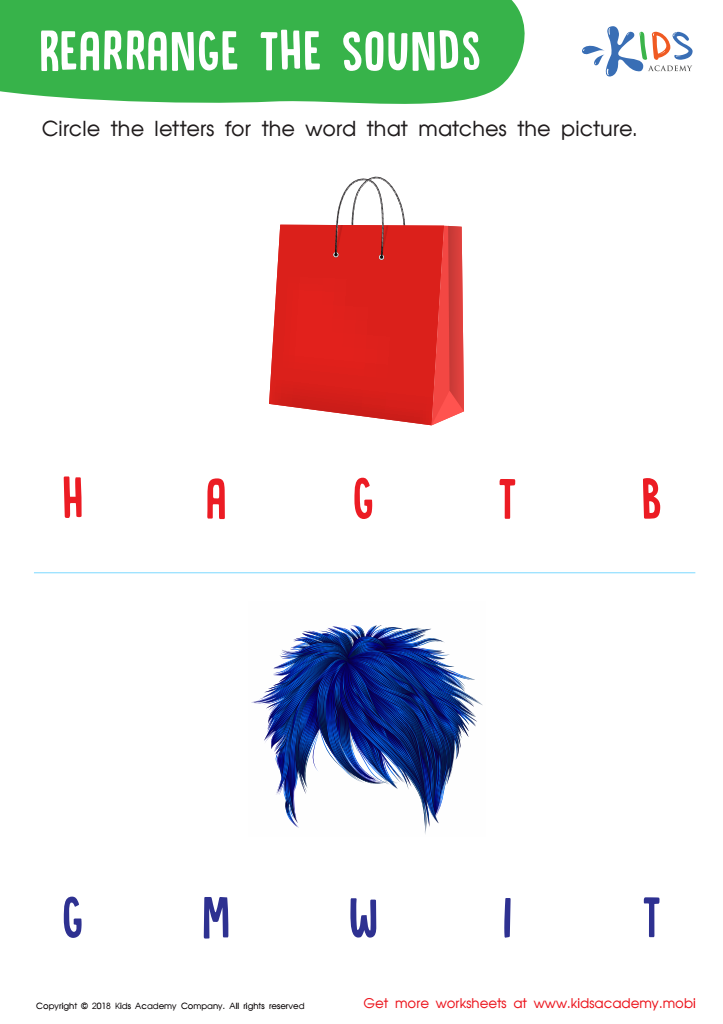Phonics Skills Normal Letter Recognition Worksheets for Ages 6-7
6 filtered results
-
From - To
Enhance your child's early reading journey with our Phonics Skills Normal Letter Recognition Worksheets designed specifically for ages 6-7. These engaging worksheets combine fun activities with essential phonics skills to help children recognize letters and their associated sounds. Our thoughtfully crafted exercises promote letter identification, allowing kids to practice tracing, coloring, and matching letters in an interactive way. Perfect for home or classroom use, these resources build a strong foundation for literacy and boost confidence in young learners. Whether reinforcing classroom lessons or complementing at-home learning, our worksheets are a valuable tool in developing proficient readers. Start exploring today!


Reading: Long O and Short O Sounds Worksheet


Short Vowels /e/, /i/, and /u/ Worksheet


Reading: Long U and Short U Sounds Worksheet


Long Vowel Maze /o/ and /i/ Worksheet


Reading: Long E and Short E Worksheet


Rearrange the Sounds Worksheet
Phonics skills, particularly normal letter recognition, are crucial for children aged 6-7 as they lay the foundation for reading and writing proficiency. During these formative years, children transition from learning the basics to applying their understanding in more complex tasks. Recognizing letters and the sounds they make is essential for decoding words and comprehending text. When children can quickly identify letters, they gain confidence in their ability to read, enhancing their motivation and enjoyment in learning.
Moreover, skilled letter recognition supports vocabulary expansion and improves spelling abilities. As children engage with books and written materials, those with solid phonics skills find it easier to develop comprehension strategies, fostering a love for reading—a skill that has long-term benefits in academic success.
Furthermore, parents and teachers can play a vital role in reinforcing these skills through interactive activities, such as games, songs, and manipulatives, that make learning engaging. An emphasis on phonics skills in early education not only promotes literacy but also encourages critical thinking and communication skills essential for lifelong learning. In essence, supporting normal letter recognition nurtures a child's overall cognitive development, positioning them for a more successful educational journey and better future opportunities.

 Assign to My Students
Assign to My Students






















